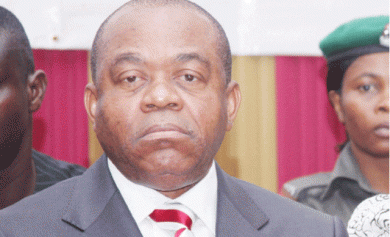
Workers in Abia would have to wait for the review of Federal Allocation before they start enjoying the new minimum wage, commissioner for information, Chief Don Ubani, said in Umuahia.
Ubani who stated this during a news briefing on the suspended labour strike, said that it would be difficult for the state government to comply with the new Minimum Wage Act given the current revenue allocation formula.
He said that the state government was not opposed to the welfare of workers in the state, but had also considered how it would affect other sectors of the state’s economy.
“The governors have accepted to pay the N18,000 and this is an indication of their good gesture to the workforce.
“That does not mean the sharing formula cannot be reviewed,” he said.
Ubani said that the wage bill of Abia currently stood at N1.8billion, while the monthly allocation was N2.8billion. He said that if the new wage was complied with by the state government without corresponding review of revenue allocation, “every other thing in the state would collapse”.
It would be recalled that governor Theodore Orji had recommended a minimum wage of N46,600 to the tripartite committee set up by the federal government to work out the new wage.
But Ubani said: “The governor made the pronouncement out of his generosity of thought to put smiles on the faces of the workers”.
He said that the pronouncement also had a proviso that if the revenue allocation formula was reviewed the state government could pay N46,600 minimum wage.
“We are not opposed to the new wage, but at the same time we do not need to ignore the clamour for fiscal federalism for states to be in-charge of their resources.
“The review of federal allocation is a necessary demand because the idea of Federal Government having 52 per cent, leaving states and local government areas with 48 per cent is not helping matters,” he said.
Ubani said that the state government was considering cutting down on cost of governance in order to serve the people better.
“The governor has started cutting down the cost of governance and the salaries of current political appointees may not be the same now,” Ubani said.

